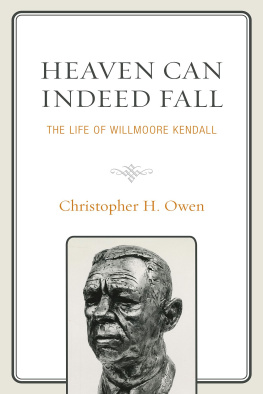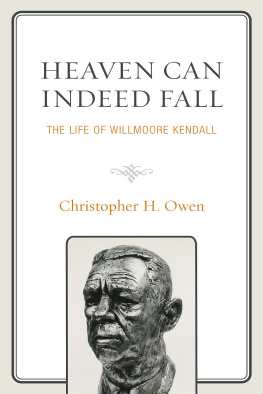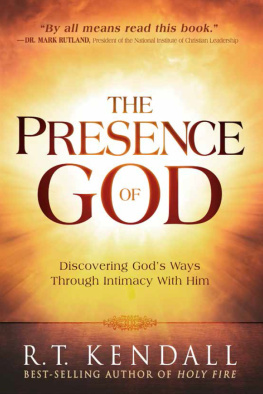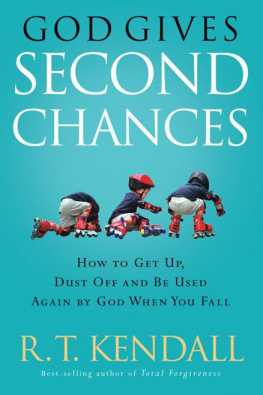Heaven Can Indeed Fall
Political Theory for Today
Series Editor: Richard Avramenko, University of Wisconsin, Madison
Political Theory for Today seeks to bring the history of political thought out of the jargon-filled world of the academy into the everyday world of social and political life. The series brings the wisdom of texts and the tradition of political philosophy to bear on salient issues of our time, especially issues pertaining to human freedom and responsibility, the relationship between individuals and the state, the moral implications of public policy, health and human flourishing, public and private virtues, and more. Great thinkers of the past have thought deeply about the human condition and their situationsbooks in Political Theory for Today build on that insight.
Titles Published
Heaven Can Indeed Fall: The Life of Willmoore Kendall , by Christopher H. Owen
The Politics of Private Property: Contested Claims to Ownership in U.S. Cultural Discourse , by Simone Knewitz
The Political Philosophy of the European City: From Polis, through City-State, to Megalopolis , by Ferenc Hrcher
John Locke and the Uncivilized Society: Resistance and Individualism in America Today , by Scott Robinson
Welcoming the Other: Student, Stranger, and Divine , edited by N. Susan Laehn and Thomas R. Laehn
Cosmopolitanism and Its Discontents: Rethinking Politics in the Age of Brexit and Trump , edited by Lee Ward
Eric Voegelins Asian Political Thought , edited by Lee Trepanier
The Spartan Drama of Platos Laws , by Eli Friedland
Idolizing the Idea: A Critical History of Modern Philosophy , by Wayne Cristaudo
Eric Voegelin Today: Voegelins Political Thought in the 21 st Century , edited by Scott Robinson, Lee Trepanier, David Whitney
Walk Away: When the Political Left Turns Right , edited by Lee Trepanier and Grant Havers
Platos Mythoi: The Political Souls Drama Beyond , by Donald H. Roy
Democracy and Its Enemies: The American Struggle for the Enlightenment , by Paul N. Goldstene
Tradition v. Rationalism: Voegelin, Oakeshott, Hayek, and Others , edited by Gene Callahan and Lee Trepanier
Aristocratic Souls in Democratic Times , edited by Richard Avramenko and Ethan Alexander-Davey
TO HOPIE
Heaven Can Indeed Fall
The Life of Willmoore Kendall
Christopher H. Owen
LEXINGTON BOOKS
Lanham Boulder New York London
Published by Lexington Books
An imprint of The Rowman & Littlefield Publishing Group, Inc.
4501 Forbes Boulevard, Suite 200, Lanham, Maryland 20706
www.rowman.com
86-90 Paul Street, London EC2A 4NE
Copyright 2021 by The Rowman & Littlefield Publishing Group, Inc.
All rights reserved. No part of this book may be reproduced in any form or by any electronic or mechanical means, including information storage and retrieval systems, without written permission from the publisher, except by a reviewer who may quote passages in a review.
British Library Cataloguing in Publication Information Available
Library of Congress Cataloging-in-Publication Data
Names: Owen, Christopher H., author.
Title: Heaven can indeed fall : the life of Willmoore Kendall/ Christopher H. Owen.
Description: Lanham : Lexington Books, [2021] | Series: Political Theory for Today / series editor, Richard Avramenko, University of Wisconsin, Madison | Includes bibliographical references and index. | Summary: Willmoore Kendall was a man against the world, a maverick, an iconoclast, a man who never lost an argument or kept a friend. He co-founded National Review, helped turn the word liberal into an insult, and became the chief theorist of conservative populism. Understanding Kendall helps us understand America Provided by publisher.
Identifiers: LCCN 2021034319 (print) | LCCN 2021034320 (ebook) | ISBN 9781793624444 (Cloth : acid-free paper) | ISBN 9781793624451 (ePub)
Subjects: LCSH: Kendall, Willmoore, 1909-1967. | ConservativesUnited StatesBiography. | JournalistsUnited StatesBiography. | College teachersPolitical activityUnited States. | Military intelligenceUnited StatesHistory. | Kendall, Willmoore, 1909-1967Mental health. | ConservativesFamily relationshipsUnited States. | ConservatismUnited States.
Classification: LCC JC573.2.U6 O94 2021 (print) | LCC JC573.2.U6 (ebook) | DDC 320.52092 [B]dc23
LC record available at https://lccn.loc.gov/2021034319
LC ebook record available at https://lccn.loc.gov/2021034320
 The paper used in this publication meets the minimum requirements of American National Standard for Information SciencesPermanence of Paper for Printed Library Materials, ANSI/NISO Z39.48-1992.
The paper used in this publication meets the minimum requirements of American National Standard for Information SciencesPermanence of Paper for Printed Library Materials, ANSI/NISO Z39.48-1992.
Contents
Making a Point, University of Dallas
Child Prodigy in Knee Pants. Lawton High School, 1921
Close Reading, Kendall Marginalia in the Second Treatise
Nellie Cooper Kendall
Teaching, University of Dallas
Domestic Harmony, At Last
Home Again
Charles Banks Wilson, Carl Albert
On the Saturday evening of May 2, 1959, the weather in Palo Alto was clear, but the wind was blowing with a bit of a chill. As the sun started to set over the Pacific, an expectant crowd gathered at Stanford Universitys Memorial Hall. This building provided the largest indoor venue on campus and could seat more than seventeen hundred persons. Tonight the Hall was too small. All seats were filled by 7:00 p.m. though the performance was scheduled to start at 7:30. Organizers set up loudspeakers on the lawn and within adjoining buildings to broadcast the event to the overflow crowd. According to one observer, attendees were hanging from the rafters. And, no, Wilbert Harrison had not shown up to play his current hit Kansas City. Rather two popular professors, a pacifist and a warmonger, were debating the morality of war. Student interest in questions of war and peace remained high as the Cold War still cast an ominous shadow.
In one corner stood Mulford Sibley, a University of Minnesota political scientist. He had served the previous year as a visiting professor at Stanford and had won a devoted following among students. Sibley, a Quaker and socialist, was the foremost advocate of pacifism in American academia. He had braved the wrath of the US government during World War II as a conscientious objector. At the height of the Cold War, Sibley continued to argue against war and military preparedness. In the other corner stood Willmoore Kendall, the well-known Fascist beast from Yale. Kendall was a veteran of World War II and Korea. He had held a high position in the Central Intelligence Agency (CIA), helped professionalize American principles of psychological warfare, and was a senior editor at National Review . Kendall, a Catholic, was finishing up his own visiting professorship at Stanford. He had replaced Sibley and had also won the hearts and minds of many students.
Though the two mens political principles could hardly have been further apart, they were old friends, having grown up together in 1920s Oklahoma. As a boy Sibley had attended the Methodist Church in the small Oklahoma town of Miami, pastored by Reverend Willmoore Kendall, Sr., father of his opponent in tonights debate. Both men had also received degrees from the University of Oklahoma. Later they crossed professional paths at the University of Illinois where Mulford Sibley got a job teaching political science as Willmoore Kendall was finishing up his doctorate. As evidenced this spring evening, both men were learned, both skilled at disputation, and both possessed strong convictions. Each spoke for 40 minutes, then got 5 minutes to respond to the other. Afterward both speakers took questions from the audience.














 The paper used in this publication meets the minimum requirements of American National Standard for Information SciencesPermanence of Paper for Printed Library Materials, ANSI/NISO Z39.48-1992.
The paper used in this publication meets the minimum requirements of American National Standard for Information SciencesPermanence of Paper for Printed Library Materials, ANSI/NISO Z39.48-1992.